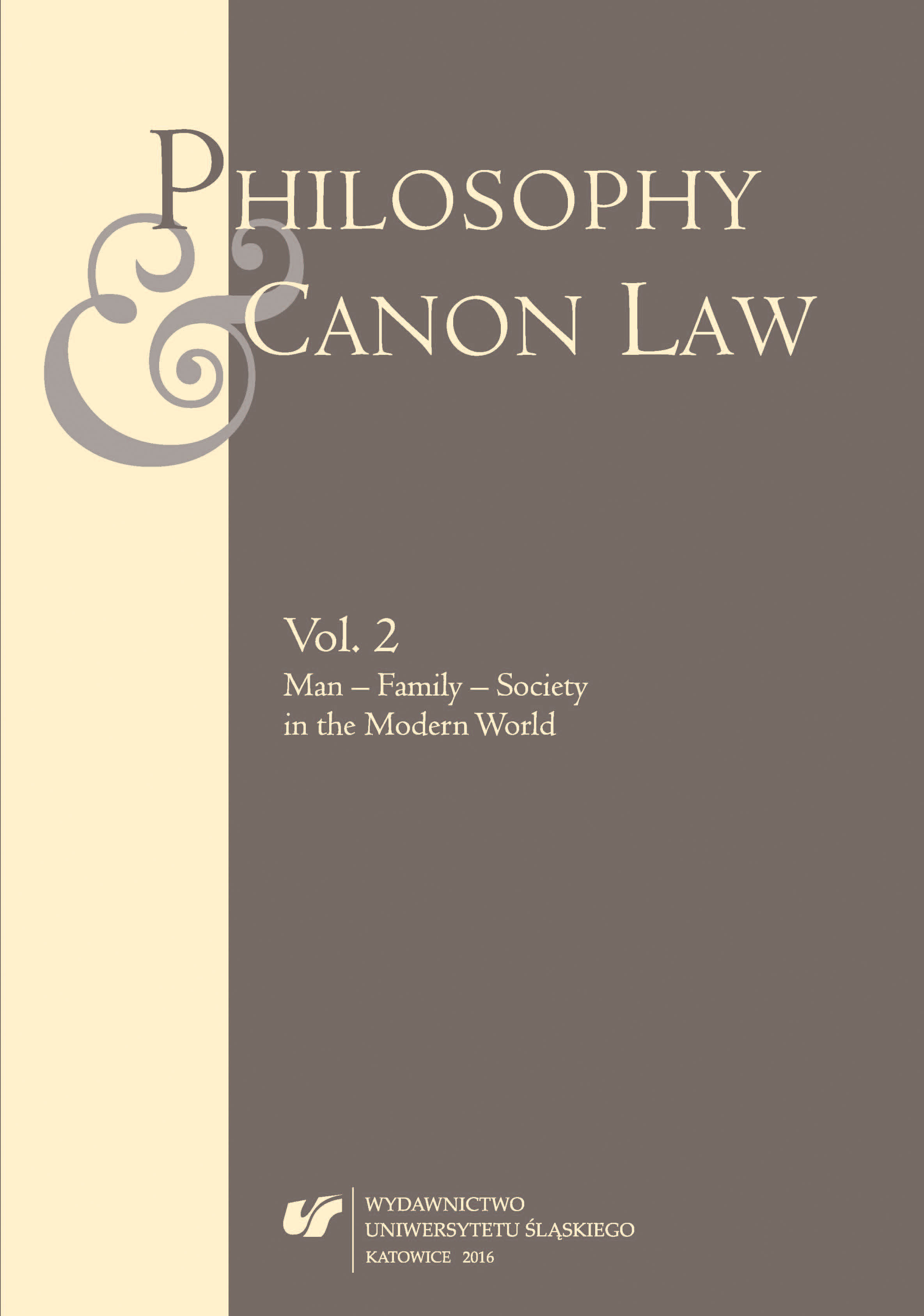Gaudium et Spes on Human Dignity and Its Implications in Bioethics
Gaudium et Spes on Human Dignity and Its Implications in Bioethics
Author(s): Witold KaniaSubject(s): Social Sciences, Psychology, Sociology, Behaviorism, Health and medicine and law
Published by: Wydawnictwo Uniwersytetu Śląskiego
Keywords: Gaudium et Spes; human dignity; abortion; euthanasia; Groningen Protocol; bioethics
Summary/Abstract: Promulgation of Gaudium et Spes coincided with the beginnings of bioethics aswell as the cultural and technological revolution of the late 1960s. In this way, the teaching ofthe Church has become a prophetic voice on many contemporary crimes against humanity. Inthe first part, the article presents the conciliar anthropology which is based on the Bible alongwith classical philosophy and constitutes the foundation for dignity. According to it, every human person, as a corporeal and spiritual being created in God’s image and likeness, is endowed with dignity. In this philosophical idiom, the aforesaid dignity can be defined as ontological. It belongs to every human person and is inalienable and inviolable. The second part of the text shows the historical and geographical development of new challenges that threaten the human dignity. In many countries, national legislation supports abortion and euthanasia. It creates a new mentality: “the culture of death.” In its last part, the article examines the paradigm of modern “progressive” moral decadence: the Dutch legislation on euthanasia of new-borns. The so-called Groningen Protocol is an example of the erroneous belief that “death is more humane than continued life in suffering.” The only means to healing the mentality affected by “the culture of death” is respect for human dignity: the sanctity of human life.
Journal: Philosophy and Canon Law
- Issue Year: 2016
- Issue No: 2
- Page Range: 83-97
- Page Count: 15
- Language: English

